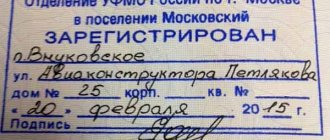Author of the article: Anastasia Ivanova Last modified: January 2021 24241
The property rights of Russians to residential real estate are protected by the legislation of the Russian Federation. Having owned a country house, an apartment or a share thereof, the owner can dispose and use his property as he sees fit. Speaking about part of the living space, it should be taken into account that its owner can not only sell, exchange or donate it, but also write a will for a share in the apartment, in the same manner as if he owned the living space in full.
Will for a share in an apartment: rights of the testator
With the help of this document, one of the civil rights relating to the right to dispose of property acquired legally is implemented. This is stated in the main law of the country - the Constitution. Within the framework of the freedoms provided, the testator has the right:
- Transfer property, apartment, including by inheritance.
- Appoint successors at your own discretion, not just relatives.
- Distribute shares of the inheritance due to legal successors.
- Change and assign special conditions, put forward requirements for heirs.
- To deprive any of the applicants of inheritance by law without giving reasons.
In order for a will for a share in a privatized apartment to gain legal force, it is necessary to follow the procedure as required by current legislation. Handwriting and notarization is required. At the same time, there are a number of questions that are often asked by those who want to write off an apartment under a will.
Can a citizen rewrite his will?
Changes cannot be made to a text that has already been written and certified. It is permissible to draw up a new will with any conditions. There is one peculiarity here: if the apartment was transferred to one of the applicants, but is now intended for another, the initial will is automatically canceled. Also keep in mind that the expression of will will deprive the apartment of everyone who is not listed in it.
Changes may concern any aspects, conditions, requirements, etc. It is often necessary to supplement the will when, in addition to the apartment, there is also property that the testator wishes to include in the estate. Many indicate special conditions, take into account the emergence of new heirs and much more that requires changing the original version of the will, replacing it with a new one.
Choosing the type of will: open, closed or secret
To avoid confusion when choosing the type of will, we suggest considering them in comparison. The common features when decorating an apartment are the following:
- The text of the will of the apartment share is written in the applicant’s own handwriting.
- Notarization of the testator's signature is required.
- Before registration, the contents of the document are read aloud.
- The procedure is carried out in the presence of two witnesses.
- Audio and video recording of the registration process is allowed.
The notary explains the rights and obligations of the participants, reminds them of the role of obligatory heirs, explains the features of a will for a share in an apartment: how to draw it up, what to take into account, etc.
At the same time, the essence of the will of the testator is kept secret. This applies to all persons present, including witnesses and notary employees.
The open declaration of will is registered and transferred to the archive, and a copy is given to the testator. A closed will in a single copy is packed in an envelope on which those present sign autographs. It is not unpacked until the day the probate case is initiated.
What transactions can a property owner conduct?
You can dispose of your own share in a privatized apartment at your own discretion. The presence of a will does not change this rule. Real estate is sold, donated, changed. It is allowed to draw up a new document, on the basis of which the inheritance is distributed on different terms. The peculiarity is that an apartment sold or donated cannot be transferred to the heir under a will, since the property right terminates immediately after the signing of the purchase and sale or donation agreement.
How can the heirs check whether the testator has transferred the property?
(read more…)
is valid until the death of the testator. And only after death, that is, the moment the inheritance is opened, will it become known who is actually indicated in the valid will.
However, the law does not restrict the testator himself from disclosing his will to the heirs named in it during his lifetime. But these may just be words, and the will shown has long been canceled or changed. Moreover, the testator is not limited in the number of wills: yesterday he indicated one heir, today another, and tomorrow a third.
It follows that transferring property to another heir is the legal right of the testator, which he can exercise at any time in his life.
Who can become the heir?
The Civil Code defines various categories of subjects who are called upon to inherit after the death of the testator. Part of the apartment is transferred:
- Individuals from among relatives.
- To strangers who do not have family ties.
- Commercial and non-profit organizations.
- Associations, foundations (charitable, public).
- Government institutions, structures, departments.
The choice determines what documents are needed to draw up a will. But the main thing is to realize who is entitled to the apartment if there is no will. In this case, the distribution of the hereditary mass is carried out in a different order.
In law
In this case, relatives of the deceased become applicants for the apartment. However, not everyone is called up at once. There are 8 queues, seven of which are relatives of the deceased, and the eighth are compulsory heirs.
Close relatives include children, parents and spouses (1st stage). If they died or abandoned the apartment, the second stage of brothers, sisters, grandchildren, etc. enters the process. Applicants from the same line receive equal shares of the apartment, unless there is a will, which reflects the will of the testator to distribute his property.
What nuances may arise?
Mandatory heirs are minor children, disabled parents and dependents. The child does not have to be born in marriage. Adoption gives him equal rights with his own children. Living parents or guardians are responsible for registering inheritance rights.
Parents also receive a share of the apartment if they cannot provide for themselves due to health reasons or due to old age. A separate category of compulsory heirs are dependents who were supported by the testator in the last year of life. It is not necessary to live in an inherited apartment. The presence of a will does not cancel the rights of the listed categories of citizens. To join you must submit an application.
The obligatory share is equal to half the amount due to them if they were heirs of the first stage. It is withdrawn from the inherited mass first, and the rest is distributed among the applicants.
By will
A will is the main document determining the fate of an apartment after the death of its owner. The text indicates the shares of each of the future owners, who are appointed here. It is possible to enter special conditions. For example, under the terms of a will, a share in an apartment is transferred on the condition that the heir will take care of a pet. It is also possible to indicate a sub-designated successor in case the primary copyright holder dies or abandons the property.
When does a document become invalid?
This happens as a result of the trial. It is possible to cancel a will if the apartment is not the property of the testator. Also, the expression of will is canceled if the citizen was less than capable at the time of signing. If the document is dictated or written by another person, there is no notarization or there are other serious errors in execution, the will is declared invalid and the apartment is divided according to the law.
Regulatory regulation of storage of wills
Article 35 of the “Constitution of the Russian Federation” (adopted by popular vote on December 12, 1993) guarantees the right of inheritance of citizens of the Russian Federation
Section V Inheritance Law of the “Civil Code of the Russian Federation (Part Three)” dated November 26, 2001 N 146-FZ (Articles 1110 - 1185) regulates the procedure for drawing up a will and inheritance and directly Article 1124. General rules regarding the form and procedure for making a will determine the specifics procedure for storing a will
“Family Code of the Russian Federation” dated December 29, 1995 N 223-FZ also considers certain issues of inheritance in articles: 36 Property of each spouse, 60 Property rights of the child, 71 Consequences of deprivation of parental rights, 74 Consequences of restriction of parental rights.
Chapter X Certification of transactions “Fundamentals of the legislation of the Russian Federation on notaries” (approved by the Supreme Court of the Russian Federation on February 11, 1993 N 4462-1) (as amended on December 31, 2017) reflects the mandatory notarization of wills.
Resolution of the Plenum of the Supreme Court of the Russian Federation dated May 29, 2012 N 9 “On judicial practice in inheritance cases” reflects clarifications on the regulation of inheritance relations.
Order of the Ministry of Culture of Russia dated August 25, 2010 N 558 (as amended on February 16, 2016) “On approval of the “List of standard management archival documents generated in the course of the activities of state bodies, local governments and organizations, indicating storage periods” reflects the storage periods of documents.
Property is transferred to a relative
In the will, you can indicate relatives as recipients of the apartment. If the inheritance is divided according to the law, only relatives participate in the division procedure, and those closest to them have priority. For registration, you must submit an application to a notary. If this step is ignored, inaction will be regarded as a voluntary refusal. Claims must be made within six months after the death of the apartment owner. Missed deadlines can be reinstated in court only if there are valid, documented reasons.
Is the degree of relationship taken into account?
When distributing shares of an apartment according to the law, this is a fundamental principle. The first applicants are immediate relatives, which include children, parents, and spouses. If they are not there, or a refusal is written, the others are called up in order of priority. When entering into rights under a will, kinship does not matter.
Do I need to obtain consent from other relatives?
This is necessary when completing certain types of transactions. It is prohibited to sell an apartment in which several people live without the consent of all residents. Also, you cannot give it as a gift or change it; there is at least one tenant who does not want this. Inheritance is another matter. Consents of cohabitants are not needed for a will, but the text can only refer to the share belonging to the testator.
Can a brother challenge his mother's will?
Contesting a will between close relatives is not uncommon. If a mother has written a testamentary disposition for one child, and the second is left without an inheritance or a significant part of it, there is a desire to challenge the document.
You can try to do this only if there are certain circumstances and grounds. If this is only the fact that the mother unfairly divided the property between the children, then the challenge will not bring any success. A will is the last will of the deceased, and the law does the maximum possible to implement it.
However, if the brother’s rights are somehow infringed and he proves this in court, then the will may be declared invalid.
A will has no statute of limitations , but it can be challenged by those who see it as a violation of their legal rights. There must be a compelling reason for this. In addition, without evidence, the court will not decide to invalidate the will.








